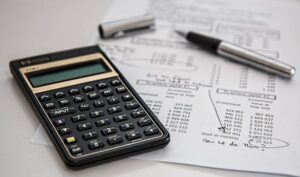Forex Trading for Smaller Businesses

Growing your small business and actualising your vision is one of the most satisfying feelings you can have. But as you already know, running a small business successfully can be easier said than done. However, you can use forex trading to enhance your business revenue and increase its resilience even in low seasons and challenging economic conditions like today.
Forex trading can increase your liquidity and even enhance your ability to acquire goods and services outside the Uk to develop and grow your small business. But if you don’t know much about forex trading, we will highlight some of the most essential things you need to know in this piece so you can trade with the utmost confidence.
Your Trading Activity Should Enhance and not Supplement Your Business’s Income
The best time to start forex trading is after your business is stable enough and brings in enough income to cater for expenses. Using business funds for forex trading to try and meet overheads is a bad idea, and you should avoid falling into that trap. This is because the forex market is highly volatile and poses substantial risks to your running capital. One wrong move in the markets can lead to massive losses, and you can do more damage than good.
Set Your Investment Capital
The first rule of setting your forex investment capital is never to risk what you can’t afford to lose. So ensure you have enough to meet your overhead and sustain your operations for a reasonable period. If possible, pick your capital from your profits and ensure it’s not too much to hurt your bottom line but substantial enough to make a difference in a decent time frame.
Consider Your Risks VS Rewards
A prudent investor always tries to reduce their risks as much as possible while keeping their upside wide open. As such, never risk more than 1% to 2% of your trading capital on a single trade. This will ensure losses remain minimal and are not substantial enough to affect your trading significantly.
Furthermore, continually improve your trading strategies as you learn more about the forex market and gain experience. In addition, constantly work to make your business’s operations more efficient and keep your reliance on forex trading to grow your capital at a minimum.
Select Your Trading Platform
Picking a good trading platform is essential to finding success in the forex industry. Fortunately, The UK is home to some of the best forex brokers in the world, and you have a multitude of excellent ones to choose from. The good thing about forex trading is that you only need to worry about brokers’ spreads, and there isn’t much more in the way of costs to it.
However, a broker with a user-friendly mobile app is invaluable, and the more educational material they can offer, the better.
Know Your Currency Pairs
Forex trading uses a pair of currencies with a base and a quote currency. The base currency is the first currency that appears on a pair, while the quote is the second and is used to determine the value of the base.
Furthermore, there are three types of currency pairs. The first and the most prevalent is the major pair which includes the top eight currencies when paired with the dollar. The second is the minor pair, which contains pairs of the top seven currencies that don’t include the dollar. And the final pair is exotic, which includes currencies from developing nations paired with the dollar.
There is no good or bad pair to trade, but some are more volatile than others. Depending on skills, risk capacity, your business and trading partners, you might prefer some over others.
Remember to Diversify
Never put all your eggs into one basket is a cliche saying you have heard hundreds of times, but we still remind you once more. As a person responsible for running a small business, it can seem easier to place a few trades to save time and reduce your workload. However, the forex market is highly volatile, and market conditions can change at the drop of a dime, leading to irrecoverable losses. So, look at a few different currency pairs and extend your investments into other instruments.






